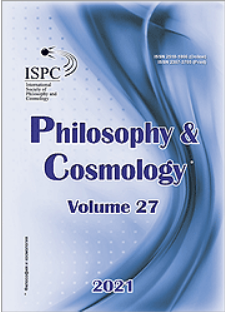In Search of Peacebuilding Strategies for the Global Civilization: from “Education for War” to “Education for Peace”
In Search of Peacebuilding Strategies for the Global Civilization: from “Education for War” to “Education for Peace”
Author(s): Serhiy TerepyshchyiSubject(s): Ethics / Practical Philosophy, International relations/trade, Politics and communication, Globalization, Peace and Conflict Studies, Philosophy of Education
Published by: Международное философско-космологическое общество
Keywords: development of civilization; peacebuilding; globalization; philosophy of education; education for war; education for peace; world order based on peace;
Summary/Abstract: The article offers a philosophical view on the problem of strengthening the potential of education in the field of peacebuilding, taking into account both current and future challenges: globalization, local conflicts of various scales, hybrid wars. At the heart of the research is the question: what is the role of education (notably higher education) in these processes? It is proved that, on the one hand, education is a “victim,” one of the components of the humanitarian problem, and on the other - an arena of clash of opposing forces, which embody two phenomena: “education for war” and “education for peace.” The tasks of our research need attention, first of all, to the philosophical context of the problem of ideologizing educational discourse. Communicative ethics was considered as one of the alternatives to ideology. We have demonstrated that communicative ethics is primarily the opposite of modern liberal ideology based on John Rawls’ theory of justice. We outlined the positions of Karl-Otto Apel and Jürgen Habermas on the concept of communication and mutual understanding. We have summarized Appel’s research, pointing to the basic moral principle of his discursive ethics, which is the regulatory requirement for realizing an ideal communicative community in a real communicative community. Based on the methodological framework proposed by Zvi Bekerman and Michalinos Zembylas, we have proposed three principles of peacebuilding for Ukrainian education: 1) strengthening the analytical tools for research on problematic issues of history, economics, and the current political situation; 2) rejection of stereotypes “we” and “they” in favor of the practice of incremental interaction; 3) implementation of the Ukrainian language in all educational programs, media, and public space.
Journal: Philosophy and Cosmology
- Issue Year: 27/2021
- Issue No: 27
- Page Range: 153-162
- Page Count: 10
- Language: English

